Non-toxic fabric softeners are gaining popularity as an eco-friendly alternative for laundry. Traditional fabric softeners contain harmful chemicals that can pose health risks and have negative environmental impacts.
By choosing non-toxic options, individuals can have a healthier laundry routine while minimizing their environmental footprint.
Mollys Suds offers all-natural fabric softener dryer sheets, Dropps provides biodegradable fabric softeners in mineral-based pods, Public Goods offers plant-based dryer sheets, and Kind Laundry offers wool dryer balls.
These alternatives provide effective softening without the use of harmful ingredients.
Key Takeaways
- Fabric softeners can contain toxic chemicals that can be harmful to the skin and overall health.
- Harsh chemicals in fabric softeners can even lead to serious illnesses like cancer.
- Fabric softeners can have negative environmental impacts, contributing to plastic pollution and harming marine life.
- Non-toxic alternatives to traditional fabric softeners, such as natural and organic options, dryer balls, and homemade alternatives, are available for eco-friendly laundry.
Harmful Effects of Traditional Fabric Softeners

Traditional fabric softeners can expose clothes to toxic materials, leading to various health problems with continued use. Discussion surrounding the harmful effects of traditional fabric softeners revolves around two key areas: the impact on the respiratory system and the potential link to skin irritation or allergies.
Firstly, fabric softeners contain chemicals such as ethyl acetate, benzyl acetate, and chloroform, which can irritate the respiratory system. Regular exposure to these substances can lead to respiratory disturbances, headaches, and even more serious conditions such as pneumonia.
Secondly, fabric softeners have been associated with skin irritation and allergies. Harsh chemicals like phthalates and linalool can cause allergic reactions, especially in individuals with sensitive skin. Babies, children, and older people are particularly susceptible to these skin irritations.
Considering the health risks associated with traditional fabric softeners, it is prudent to explore non-toxic alternatives that prioritize the well-being of individuals and their environment.
Toxic Ingredients to Avoid in Fabric Softeners
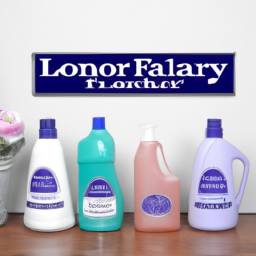
Many fabric softeners contain harmful ingredients that can be detrimental to human health. Toxicity concerns arise from the chemicals found in traditional fabric softeners, which can have adverse effects on the respiratory system, skin, and overall well-being.
Ingredients such as ethyl acetate, benzyl acetate, chloroform, phthalates, A-terpineol, camphor, linalool, benzyl alcohol, and limonene have been linked to various health problems, including respiratory disturbances, central nervous system disorders, and even cancer.
As a result, there is a growing demand for alternative fabric softeners that are non-toxic and eco-friendly. These alternatives include natural and organic options, soy-based softeners, dryer balls, and homemade solutions using baking soda, vinegar, aluminum foil, and reduced laundry detergent.
Environmental Impact of Fabric Softener Ingredients

Liquid fabric softeners often contain petroleum-based chemicals derived from fossil fuels, which can have negative environmental impacts. These chemicals, when released into the environment, can contribute to water pollution. As fabric softeners are rinsed out of clothes during the washing process, the harmful ingredients can end up in wastewater systems and eventually make their way into rivers, lakes, and oceans. This can have detrimental effects on aquatic life and ecosystems.
Additionally, fabric softeners can also contribute to air pollution. When used in dryers, the chemicals in fabric softeners can be released into the air, contributing to indoor and outdoor air pollution. This can have negative impacts on air quality and human health.
Therefore, it is important to consider the environmental impact of fabric softener ingredients and opt for more eco-friendly alternatives.
Benefits of Non-Toxic Fabric Softeners
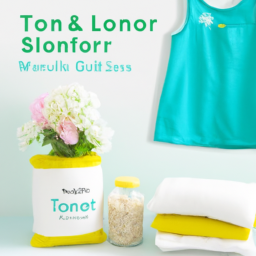
Using plant-based ingredients, Molly’s Suds Natural fabric softeners and wool dryer balls provide a safer alternative for those seeking softer and fresher laundry.
These natural fabric softeners offer several benefits compared to traditional fabric softeners. Firstly, they are free of toxic chemicals such as phthalates, parabens, and synthetic fragrances, making them hypoallergenic and suitable for those with sensitive skin or fragrance allergies.
Secondly, they are environmentally friendly, as they are derived from renewable resources and come in recycled and biodegradable packaging.
Additionally, Molly’s Suds fabric softeners and wool dryer balls are long-lasting, reducing the need for frequent repurchases and ultimately decreasing waste.
In comparison to other eco-friendly fabric softener brands like Dropps and Public Goods, Molly’s Suds stands out with their focus on using plant-based ingredients and providing a safe and effective alternative for a healthier laundry routine.
Mollys Suds Natural Fabric Softeners & Wool Dryer Balls
Molly’s Suds Natural fabric softeners and wool dryer balls offer a safe and plant-based alternative for those looking to make their laundry routine healthier.
When comparing natural fabric softeners to traditional fabric softeners, it is important to consider the toxicity of the ingredients. Traditional fabric softeners often contain harmful chemicals that can be released into the air and absorbed by the skin.
Molly’s Suds fabric softeners, on the other hand, are free of petrochemicals, dyes, solvents, and pesticides, making them a non-toxic choice. Choosing non-toxic laundry products is crucial for protecting our health and the environment.
Dropps Biodegradable Fabric Softeners
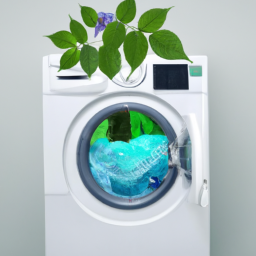
Dropps fabric softeners, available in biodegradable pods, offer a convenient and sustainable option for enhancing the softness and freshness of laundry. These eco-friendly fabric softeners provide several benefits for individuals looking for non-toxic alternatives.
Incorporating Dropps fabric softeners into your laundry routine is simple. Just toss a pod into the washing machine with your clothes and let the softener dissolve in the water without leaving any residue. The natural mineral-based materials used in Dropps fabric softeners are gentle on fabrics and safe for the environment.
In addition to their eco-friendly nature, Dropps fabric softeners are also certified cruelty-free, making them a compassionate choice for those concerned about animal welfare.
Public Goods Plant-Based Dryer Sheets
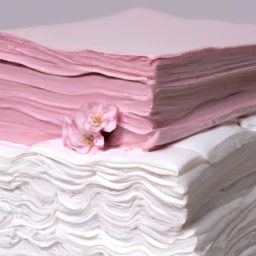
Public Goods offers a range of eco-friendly alternatives for fabric softening, including their plant-based dryer sheets. These dryer sheets are made with ingredients derived from plants and are free from toxic chemicals, gluten, phthalates, phosphates, and parabens.
They are hypoallergenic, making them suitable for individuals with fragrance allergies or sensitive skin. The dryer sheets come in a pack of 80 rayon sheets, providing an affordable option for eco-conscious consumers.
Kind Laundry’s Wool Dryer Balls
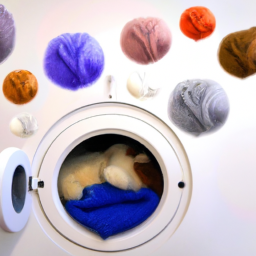
Kind Laundry’s wool dryer balls are an earth-friendly and long-lasting alternative to synthetic options. Made of 100% pure New Zealand Wool, these dryer balls offer a range of benefits for eco-friendly laundry.
Benefits of wool dryer balls:
Natural and sustainable: Wool is a renewable resource that can be harvested without harm to animals or the environment.
Reduced drying time: The dryer balls help to separate and fluff clothes, allowing for better air circulation and faster drying.
Softens and reduces wrinkles: The gentle agitation of the dryer balls helps to soften clothes and reduce wrinkles without the need for chemical-laden fabric softeners.
Eliminates static cling: Wool dryer balls prevent static electricity build-up, keeping clothes static-free.
Comparison of different types of fabric softeners:
Synthetic options: Traditional fabric softeners often contain chemicals that can be harmful to both human health and the environment.
Wool dryer balls: In contrast, wool dryer balls are a natural, non-toxic alternative that offers similar benefits without the negative impacts.
Health Risks of Traditional Fabric Softeners
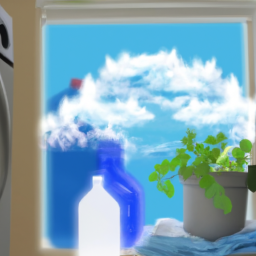
Many people are unaware of the potential health risks associated with using traditional fabric softeners. These widely used products often contain harmful chemicals that can pose a threat to our well-being. Harsh ingredients such as ethyl acetate, benzyl acetate, and chloroform have been linked to respiratory and neurological disorders, skin irritation, and even cancer.
In addition to the health risks, the environmental impacts of fabric softeners cannot be ignored. The petroleum-based chemicals used in many fabric softeners contribute to pollution and harm marine life.
However, safer alternatives to traditional fabric softeners do exist. Eco-friendly options like Mollys Suds, Dropps, Public Goods, and Kind Laundry offer non-toxic alternatives that are free from harmful chemicals. By using these alternatives, we can prioritize our health and the well-being of the environment.
Frequently Asked Questions
Are Fabric Softeners Safe for Babies and Children?
Fabric softeners may not be safe for babies and children due to potential respiratory issues and hormone disruption. Some fabric softeners contain chemicals that can irritate the respiratory system and cause respiratory disturbances.
Additionally, certain chemicals found in fabric softeners, such as phthalates, have been linked to hormone disruption and reproductive system problems.
To ensure the safety of babies and children, it is recommended to consider non-toxic fabric softeners that are free from harmful chemicals and made from natural ingredients.
Can Using Fabric Softeners Cause Allergies or Skin Irritations?
Fabric softeners can indeed cause allergies and skin irritations in some individuals. Certain chemicals found in traditional fabric softeners, such as phthalates and benzyl alcohol, have been linked to allergic reactions and skin sensitivities. These reactions can be especially common in babies, children, and individuals with sensitive skin.
However, by opting for non-toxic fabric softeners, such as Mollys Suds, Dropps, Public Goods, or Kind Laundry, one can reduce the risk of allergies and skin irritations while still enjoying the benefits of softer and fresher laundry.
How Can Fabric Softeners Impact the Environment?
Fabric softeners can have a significant impact on the environment. Traditional fabric softeners often contain non-biodegradable and harmful substances, which can be detrimental to marine life when they enter water systems.
Additionally, the plastic packaging of fabric softeners contributes to plastic pollution in landfills.
To mitigate these environmental impacts, individuals can opt for eco-friendly fabric softeners. These alternatives are made from natural and organic ingredients, reducing the use of petroleum-based chemicals and minimizing harm to the environment.
Are There Any Natural Alternatives to Traditional Fabric Softeners?
Natural fabric softeners are a great alternative to traditional ones. They are made from organic and plant-based ingredients, ensuring a non-toxic and eco-friendly laundry routine. Some popular options include Mollys Suds, Dropps, Public Goods, and Kind Laundry.
These products are free from harmful chemicals and are safe for people with sensitive skin. Additionally, homemade fabric softeners using baking soda, vinegar, aluminum foil, or reducing the amount of laundry detergent can be effective and environmentally-friendly choices.
Are There Any Long-Lasting Alternatives to Synthetic Fabric Softeners?
Natural fabric softeners and homemade fabric softeners offer long-lasting alternatives to synthetic fabric softeners. These options are gaining popularity due to their eco-friendly nature and non-toxic ingredients.
Natural fabric softeners, such as those offered by Mollys Suds, Dropps, and Public Goods, are made with plant-based materials and are free from harmful chemicals.
Homemade alternatives, such as baking soda, vinegar, aluminum foil, and reducing laundry detergent, are also effective and sustainable choices for eco-friendly laundry.
These options provide a healthier and more sustainable approach to fabric softening.